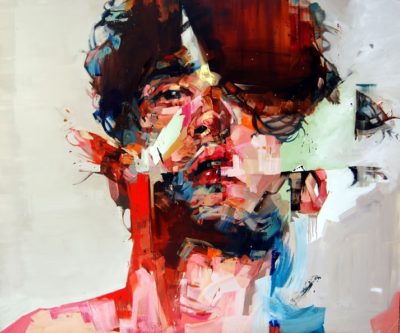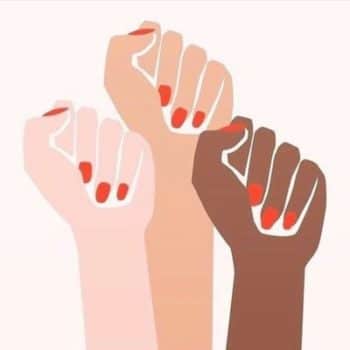The Mother Wound as the Missing Link in Understanding Misogyny

What’s going on with men?
With this massive wave of brave women coming forward with disclosures of sexual harassment across many industries, many of us, men and women alike, are grappling with the sobering reality of rampant misogyny. As a culture, we’re left to ask questions like, why do so many men have the impulse to disrespect, hate or violate women? Where does that really come from? And how do we stop it?
As an internationally recognized expert on the Mother Wound in women, I’m often asked to speak about the Mother Wound in men. At this time of mass disclosures about sexual assault, I wanted to write a piece exploring how the Mother Wound is the missing link in our understanding of misogyny. In this essay, I’ll examine how boys develop in the modern world, the unprocessed anger below the surface of the lives of men, the role of privilege and the inner work that both men and women can undertake to transform our situation.
Oxford dictionary defines misogyny as “dislike of, contempt for, or ingrained prejudice against women.” To understand misogyny, we have to explore the first relationship a man ever has with a woman; with his mother.
For both girls and boys, the relationships with our mothers are one of the most significant relationship in our lives. It’s impossible to overstate just how foundational this relationship is and how it impacts our wellbeing well into our adulthood. In the first weeks and months of our lives, mother is food, mother is world, mother is body, and mother is self. For both women and men, the Mother Wound itself is a product of patriarchy, of living in a culture with domination of women at its core.
“The mother-child relationship can be seen as the first relationship violated by patriarchy.“ ~Adrienne Rich
On a personal level, the Mother Wound is an internalized set of limiting beliefs and patterns originating from the relationship with one’s mother. The Mother Wound exists on a spectrum, with healthy, supportive mother/child relationships on one end and abusive traumatic mother/child relationships on the other end. Many complex factors go into how one’s Mother Wound manifests and where one falls on that spectrum. For men, it comes down to the specific dynamics that played out between a boy and his mother, as well as how the father supported or thwarted that primary connection. Because patriarchy—the principle of domination—can be embodied by either a man or a woman, the mother or father may have played the role of patriarchal parent in a boy’s life. For example, some boys may have experienced their mothers as neglectful or as domineering. Some may have experienced their mothers as victims of their fathers or their mothers as the dominant one and their father the more passive one.
“Patriarchy demands of men that they become and remain emotional cripples. Since it is a system that denies men full access to their freedom of will, it is difficult for any man of any class to rebel against patriarchy, to be disloyal to the patriarchal parent, be that parent female or male.” ~ bell hooks
As a boy grows today in the modern world, he becomes socialized by his father, by other men, and by society about what it means to be a man. The patriarchal culture of media, education and religion also perform that function. Unfortunately, it’s well-documented that this socialization of the boy involves to some degree learning to dominate others, to shut down his emotions and to devalue women. (See resources below.) This constitutes both a personal and collective trauma.
Healing personal trauma is central to undoing the patriarchy
Contrary to our modern world, the history of civilization is full of examples of cultures giving boys the initiatory experience of graduating into manhood through a time of physical trials, which helps them symbolically cross a psychological bridge from the relative comforts of childhood into the rigors of adulthood. In this positive context, surrounded by male elders, some kind of physical/emotional wound occurs, helping the boy contact his inner strength, confidence and sense of responsibility. Today in the modern world, most boys experience wounding but without a positive transformation. There are few official rites, few wise elders and a dearth of male role models outside the toxic status quo.
The cultural expectation to devalue women, including his mother, sets a boy up for cognitive dissonance about what his mother represents in himself, including the ability to express his emotions, to be vulnerable, to express physical affection, etc. In this way, his mother could be seen broadly as a “lost source” to the boy, and the father, as socializer of the boy into the world of men, could be seen as “severer of the bond” with the mother, with his source.
For white men, privilege plays a role. In addition to discouraging their emotions and encouraging domination, society gives them unearned advantages that are denied to other groups including women and people of color. According to American sociologist, Professor Michael Kimmel,privilege is invisible to those who have it. This leaves white men with a triple wound; an injury to their ability to process their emotions, a blindness about their privilege and a lack of empathy for those they harm. This triple wound in white men has remained relatively unconscious and has caused unspeakable suffering in the world.
I came across this stunning 1977 quote by Adrienne Rich from her essay in the book “On Lies, Secrets and Silence” which speaks powerfully to the connection between misogyny and the Mother Wound in men:
“Much male fear of feminism is the fear that, in becoming whole human beings, women will cease to mother men, to provide the breast, the lullaby, the continuous attention associated by the infant with the mother. Much male fear of feminism is infantilism—the longing to remain a mother’s son, to possess a woman purely for him. These infantile needs of adult men for women have been sentimentalized and romanticized long enough as “love”; it is time to recognize them as arrested development, and to re-examine the ideal preservation of “the family” within which those needs are allowed free rein to the point of violence. Because the law and the economic and social order are heavily weighted in favor of men, the infantile needs of adult males are affirmed by a machinery of power, which does not affirm or validate the needs of adult women. Institutionalized marriage and motherhood perpetuate the will of male infants as law in the adult world.”
What’s been happening with the #metoo movement, with women telling their stories of sexual assault and outing their abusers, is that the “free rein” that men have used to dominate women in the home and in the workplace is being increasingly curtailed. Women are less willing to remain the silent projection screen onto which men can project their disowned pain with impunity. And many male witnesses are no longer willing to look the other way.
Assault as sexualized hostility
Sexual assault is not about sex, it’s about power. Alexandra Katehakis, a sex therapist and Clinical Director for the Center for Healthy Sex in L.A. describes it this way: “Guys who engage in this type of behavior are incredibly rageful towards females. It often harkens back to childhood abuse. For example, maybe they had mothers who were emotionally abusive or who didn’t protect them from abusive fathers. As some men get older they act out that anger towards women in the language of sex. They sexualize their emotions because they don’t know any other way of comporting themselves.”
It is as if the inner male child is unconsciously caught between his painful longing for the “lost source” represented by his mother and his cultural conditioning to hate her as a woman. Put another way, men are caught between a natural desire for their full humanity (the ability to be emotional, vulnerable and empathic) and their desire to remain privileged and in dominator mode. The thing is that one can’t have both. To hold on to dominator mode (patriarchy) is to increasingly lose access to your humanity. And to be fully human, one has to forsake the dominator mode, and all the insidious ways it can show up in oneself. No amount of privilege (wealth, power, fame, prestige) will ever compensate for the devastation, to whatever degree, that patriarchy has wrought on the little boy within him. No amount of power over others will ever make up for that lost part of himself. It can only be found through doing the inner work to reclaim it.
A man can find this “lost source,” not in the form of physical women, but in the form of exploring what it means to reclaim what the mother or the feminine represents within him, such as the feeling function, the world of emotions, the experience of deep connection within himself and a sense of authentic belonging with others. However, in order to access these vital capacities that have been in shadow, men first have to engage with the child within who is angry that there has been little payoff for forsaking these vital aspects of himself.
It’s easier to project rage onto a “mother substitute” or the “father substitute” out there in the world. Male privilege permits men a blindness to their mother and father wounds while the world burns. However, it takes courage to retract those projections and process the anger about the inner patriarch, the archetype of the cruel, unfeeling father, that granted him access to the world of men at the massive cost of disconnection from his true self, the innocent boy who came into this world capable of expressing empathy, emotionality, and vulnerability. The anger belongs with the patriarchal father (personal and/or collective), the “severer of the bond,” who betrayed the boy, who socialized him to give up a vital part of himself to be accepted in this world as a man. The anger also belongs with the mother who was unable to protect him from this patriarchal wound or who may have inflicted it herself. When men can direct their anger there, to where it truly belongs, things will really begin to shift.
“Misogyny is a son’s outwardly projected rage on a mother who was unable to protect him.” ~ Gabor MatéAt its core, for men and women alike, the task of healing the Mother Wound is ultimately the same: to de-couple one’s inner and outer life from the lamination of “mother,” so that one’s full potential can be fully accessed and actualized.
In his book “Under Saturn’s Shadow”, author and Jungian analyst, James Hollis brilliantly encapsulates it this way:
“When we remember that patriarchy is a cultural contrivance, an invention to compensate for powerlessness, we realize that men, contrary to widespread opinions, are more often the more dependent sex. The Marlboro man, the rugged individualist, is most ambushed by his inner feminine, for he is most in denial. Whenever a man is obliged to be a good boy, or conversely, he feels he must be a bad boy, or a wild man, he is still compensating for the power of the mother complex.
I do not say it is a man’s fault that he is so vulnerable, so dependent; that he is merely human. What is his responsibility is to recognize how deeply any child needs positive mothering and how much the pattern of that need sets his psychic life in motion and continues to operate beneath the surface. He may pretend to adult empowerment, hold the reigns of government or the purse, but the lines of stress reach deep down into his relationship with his mother. Men must grasp and accept this fact, and then take responsibility for it, or they will continue to play out infantile patterns forever.”
Healing the Mother Wound for men involves removing their projected rage off of women and processing it towards its true target… with patriarchy itself and to the very specific traumatic events of their childhood in which that played out.
To do this deep inner work, it’s crucial that men get support from other men who have already done a significant amount of work on this journey themselves, including professional support from male therapists skilled in this area.
Broadly speaking, men’s inner and outer work involves:
- Processing the anger about the parent (mother and/or father) who betrayed him by making him give up vital parts of himself in order to be considered a man in this world. Grieving about what that has cost him.
- Being honest about his life. Acknowledging his secrets and taking responsibility for his actions.
- Finding that lost inner source within him and working to re-claim it. Connecting with the child within him.
- Feeling genuine remorse about the ways that he has harmed other people and the earth by acting out his pain in unconscious ways, both personally and collectively, while taking empathic actions on a consistent basis.
- Finding community with other conscious men who are on this path of reclamation and reconciliation.
In the long-term, men must commit to the long-term inner work. And in the short-term, men need to experience real consequences for their actions.
Shawn Vestal explains that it’s not for a lack of training that men sexually assault in the workplace. “It’s not about what men don’t know. It’s about what men have known too well: That we can get away with it. That it will be excused, hidden, justified and rationalized, and no one will be called to account.” In other words, until men have sufficient integrity to not sexually assault, real consequences must come into play at work and in relationships that halt the toxic behavior. Basically, men need a global intervention, a resounding, societal “no” to wake up to the realities they’ve been oblivious to.To support this process, as women we have to say no in every way possible to the raging boy within the men in our lives, be they friends, colleagues, brothers or husbands. Back to Rich’s quote, women have to withdraw from the ways that we have over-functioned or mothered men. We have to “withdraw the breast, the lullaby and the constant attention associated by the infant with the mother.” That way, men can feel the full magnitude of their predicament, which is the beginning of lasting, meaningful change.
Only by men feeling the painful gap of what women are no longer willing to do for them, will they experience sufficient motivation to finally step in and fill that gap from within themselves, which includes increasingly:
- Taking responsibility for their emotions, feeling them and processing them. Getting support.
- Having sex as a way to connect, not a way to feel powerful
- Soothing the little boy within him when he’s triggered
- Differentiating between the pain of the past from what’s happening in the present
- Becoming aware of his projections and seeing the women in their lives as people, not as objects
- Centering and amplifying the voices of those who are marginalized, while listening and learning from them
As women we must keep using our voices and speaking out about male abuse of power every chance we get and amplify the voices of other women who are enduring male abuse, particularly the voices of women of color and indigenous women.
As women we must stop:
- Catering to their illusions that come from an ignorance of their own privilege
- Staying quiet to avoid conflict
- Internalizing their projections from their disowned pain
- Minimizing our feelings in their presence
- Accepting crumbs of respect instead of what we truly deserve
- Giving our power away in the form of emotional caretaking
- Giving time and energy to men who refuse to do their inner work
The truth is that women are very limited in how they can help men in their healing. We can hold space, but we can’t do the work for them. It is their journey and they have to want it for themselves. In the meantime, let’s expand our awareness of our value outside the male gaze, prioritize our own inner work, and heal our own childhood wounds. Let’s hold strong boundaries with those who are not doing their inner work and spend more time with those who are. True sisterhood is a crucial source of nourishment for these times.
Harnessing our anger as fuel for wise action
The more we contact the truth of our worth as women, the more rage we will feel about the devastation toxic masculinity has caused. Our anger is an essential tool in this time, to sharpen our refusal to be compliant with oppression of any kind, including internalized misogyny directed at ourselves, and for white women, a refusal to be patriarchal to others, and specifically facing how we have facilitated the oppression of men and women of color.
“One oppresses what one fears.” ~ James Hollis
Healing from patriarchy requires that every privileged group actively confront their ignorance and cultivate sincere empathy for how their privilege has caused harm to others.
Allowing oneself to be emotionally affected by the depths of horrors that have been perpetrated by our privilege is a necessary but often avoided step in creating real equality between people. Just as white women need to endure the experience of feeling genuinely horrified about the ways in which we have, knowingly or unknowingly, facilitated white supremacy onto people of color, white men have to do the same about how their ignorance, afforded by privilege, has collectively caused an unspeakable amount of pain in the world to women, people of color and the planet itself.
“The role of the artist is exactly the same as the role of the lover. If I love you, I have to make you conscious of the things you don’t see.” ~ James Baldwin
May this ever-rising tide of female anger be followed by a commensurate wave of brave men willing to explore their inner terrain, to embrace the abandoned boy within and to process the legitimate anger and grief about what patriarchy has stolen from them: their full humanity. Collective change will occur when enough individual men change. May men take full responsibility and humbly embrace this raw, necessary discomfort as the medicine they need to heal their personal and collective Mother Wound. And may women refuse to allow the behavior of unconscious men to define them.
Resources for Men:
Under Saturn’s Shadow: The Wounding and Healing of Men by James Hollis Understanding Patriarchy by bell hooks King, Warrior, Magician, Lover: Rediscovering the Archetypes of the Mature Masculine by Robert Moore and Douglas Gillette. The Middle Passage: From Misery to Meaning in Midlife by James Hollis The Eden Project: The Search for the Magical Other by James Hollis Iron John: A Book about Men by Robert Bly Castration and Male Rage: The Phallic Wound by Eugene Monick Finding our Fathers by Sam OshersonPhallos: Sacred Image of the Masculine by Eugene Monick
The Macho Paradox: Why Some Men Hurt Women and How All Men Can Help by Jackson Katz
Jackson Katz
Art credit: “The Bewildered Pursuit” by Andrew Salgado



